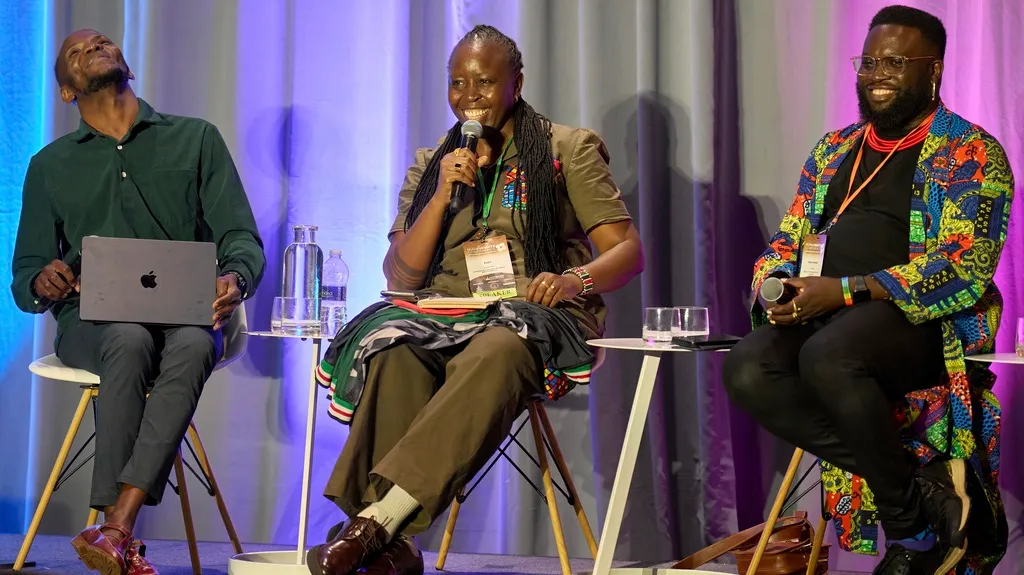March 6, 2015
On Int'l Women's Day, Women Farmers Key to Fighting Hunger
EDGE READ TIME: 3 MIN.
Marking International Women's Day 2015, leaders from the United Nations' three Rome-based food agencies gathered to remind the world that women farmers play a central role in achieving food and nutrition security.
At the Rome event, leaders from the Food and Agriculture Organization (FAO), the International Fund for Agricultural Development (IFAD) and the World Food Programme (WFP) shared testimonials of their innovative interventions that have empowered rural women, and in doing so have contributed to food security and nutrition. They also highlighted that promoting gender equality and women's empowerment can significantly strengthen efforts to reduce rural poverty.
This year's event also marks the 20th anniversary of the landmark Fourth World Conference on Women in Beijing in 1995 (Beijing +20).
IFAD President Kanayo F. Nwanze delivered the opening keynote address pointing out that as men in developing countries migrate to urban centers or shift to better-paid work, a "feminization of agriculture" has occurred with approximately half of the agricultural workforce worldwide now made up of women.
"Women are the backbone of rural societies as they grow and process food and make sure their families are well-fed and well-nourished," Nwanze said. "Too often, rural women are doing the backbreaking work. To improve women's social and economic status, we need more recognition for the vital role they play in the rural economy. Rural women need more opportunities to participate, improve their skills, gain access to assets, and be involved in agricultural production and marketing. Let us all work together to empower women to achieve food and nutrition security. For their sake, and the sake of their families and communities."
Ertharin Cousin, the Executive Director of WFP, highlighted the innovative Purchase for Progress (P4P) initiative, which connects smallholders to markets and in five years tripled women's participation in P4P-supported farmers' organizations in 20 countries.
"Using WFP's market power, the organization directly and positively impacted the lives of 300,000 women," Cousin said. "By purchasing crops traditionally cultivated by women, such as beans and soya, WFP demonstrated the key role rural women play as we work together to achieve a world with zero hunger. While acknowledging the success of this programme we must scale up the lessons learned to ensure greater opportunities for more women."
Marcela Villarreal, Director of the Office for Partnerships, Advocacy and Capacity Development in FAO, stressed that food security overall would improve significantly if women were empowered with the same opportunities that men have, and sounded a warning about the position of rural women, in particular.
"While significant progress has been made in improving the lives of women since the Beijing conference, we're concerned that rural women are lagging behind in every development indicator -- both behind rural men and urban women," Villarreal said. "In the 20 years since that conference, we have not achieved enough for this group of women who play an important role as food providers, and we need to step up our efforts to enable them to reach their full potential."
Rural women have generally less access than men to productive resources and services. This gap imposes real costs on societies in terms of lost agricultural output, food security, and economic growth.
Events throughout the year to mark Beijing +20 provide an opportunity for the Rome-based UN agencies, the international community as a whole, and national governments to reflect on progress, flag remaining gaps, and renew their commitments to gender equality and women's empowerment. Despite the historic agreement of the Beijing Platform for Action by 189 governments in 1995, no country in the world has yet achieved gender equality. The gender pay gap is just one example of inequality that affects women worldwide.
The International Fund for Agricultural Development (IFAD) invests in rural people, empowering them to reduce poverty, increase food security, improve nutrition and strengthen resilience. Since 1978, we have provided over US$16.3 billion in grants and low-interest loans to projects that have reached about 438 million people. IFAD is an international financial institution and a specialized United Nations agency based in Rome -- the UN's food and agriculture hub.
For more information, visit http://www.ifad.org/gender/


